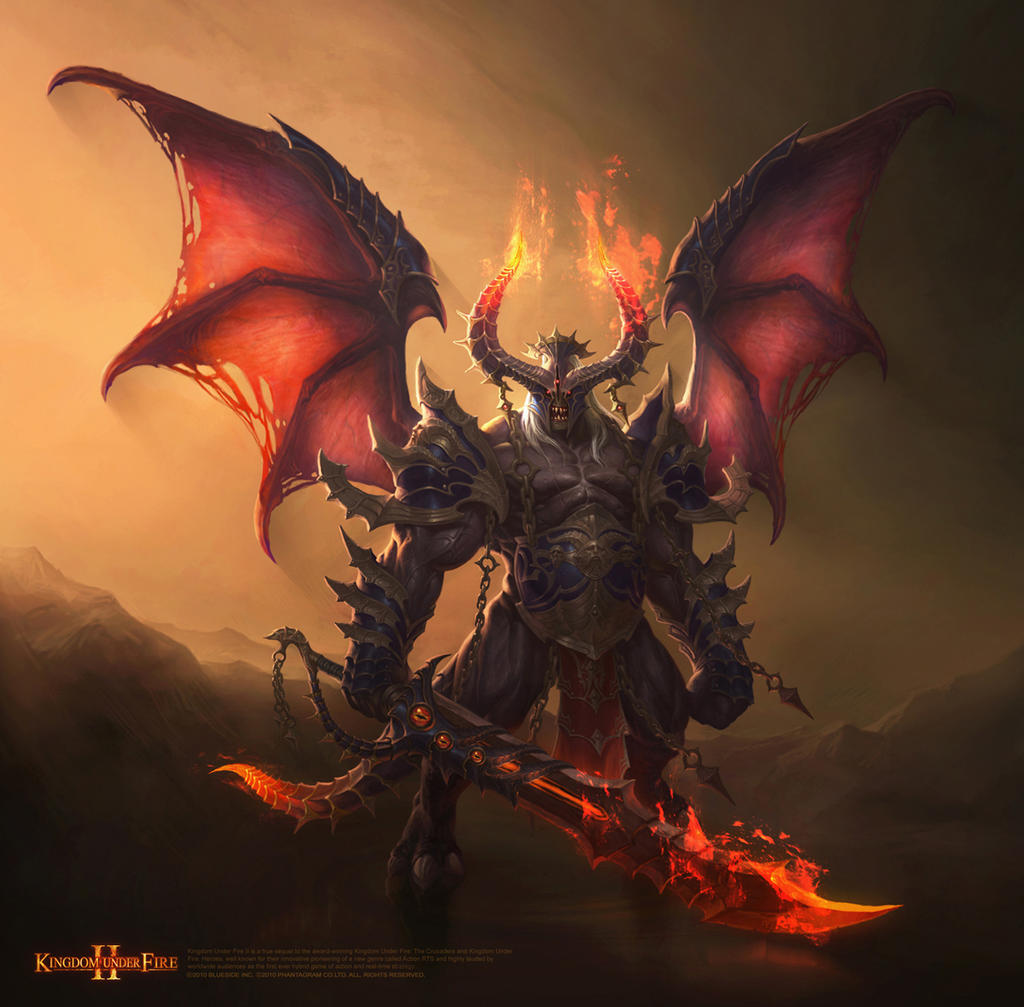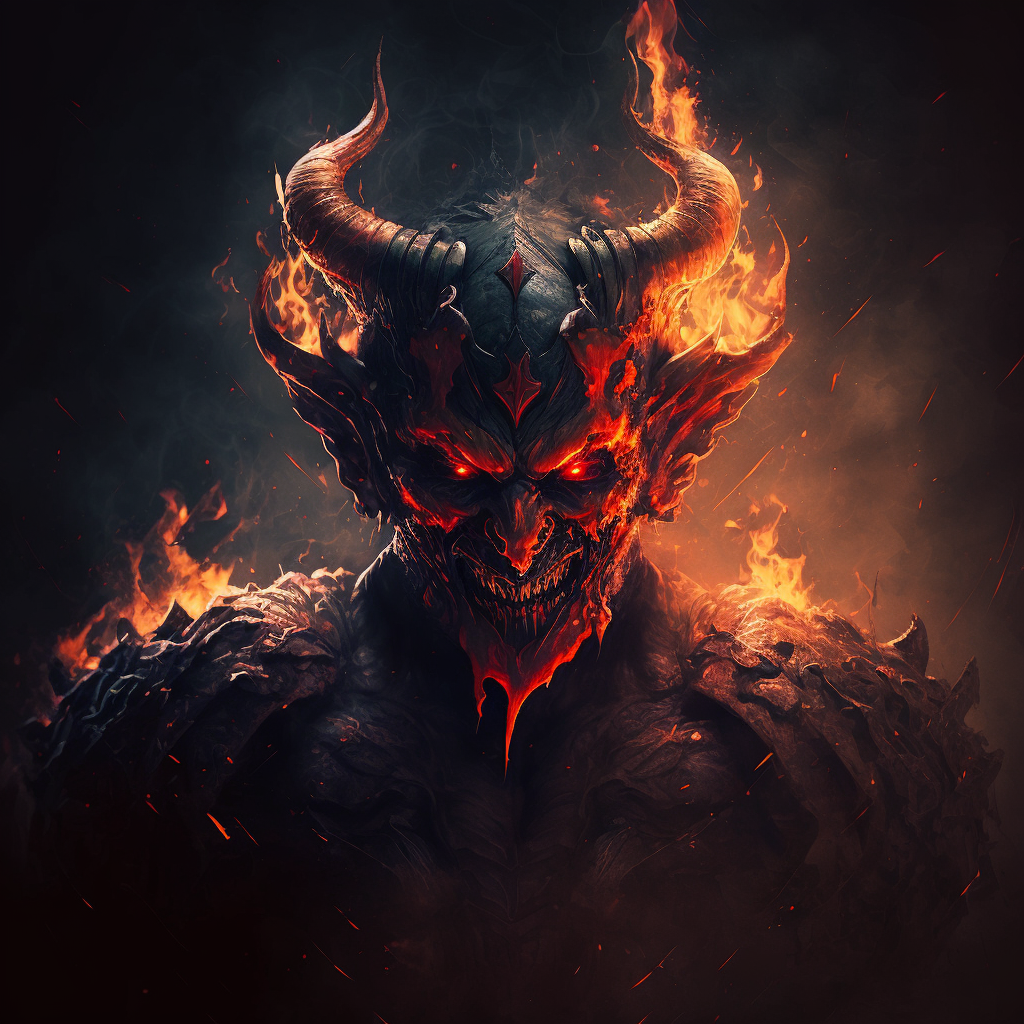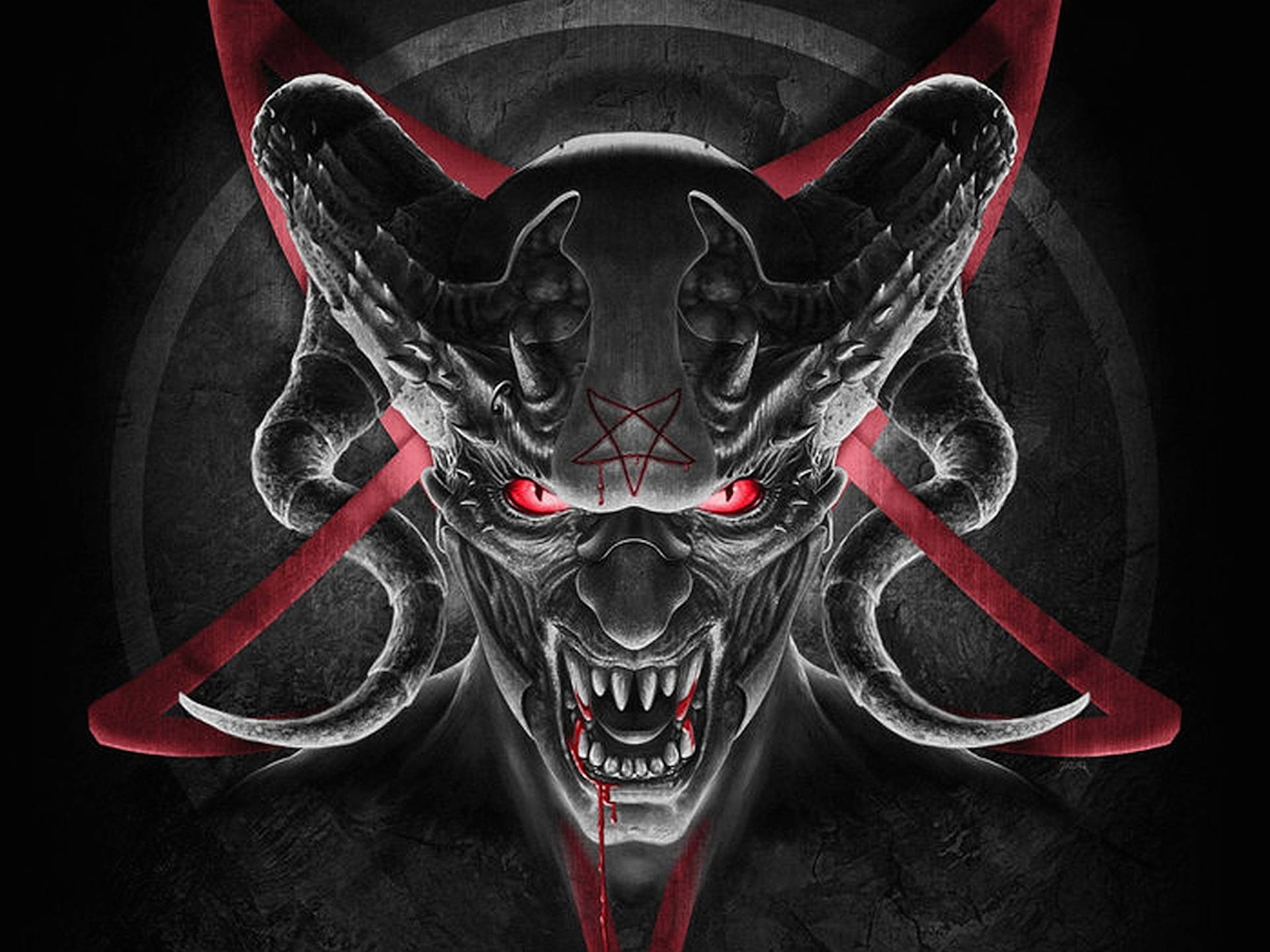Have you ever stopped to think about the true meaning behind words like "demon" or "devil"? It's a bit of a curious thing, isn't it? Many people, quite naturally, use these terms almost interchangeably, thinking they mean the very same thing. Yet, in Western traditions, and even in the ancient roots of these words, there are some pretty interesting distinctions. Today, we're going to explore what it means to be a "demon," perhaps focusing on a character like "Mikaela" as a way to understand these deep concepts.
So, you might have heard someone say "demon" and "devil" as if they were identical, and honestly, that's a pretty common habit. But, as a matter of fact, there's a fascinating history and some subtle differences that really shape how we picture these powerful, often scary, figures. We’ll look at the roots of these words and how they’ve changed over time.
This discussion isn't just about old stories or religious texts, either. It truly helps us grasp how various cultures and beliefs have tried to make sense of the unseen forces around us. Understanding what makes a "demon" a "demon," and how that might apply to someone or something called "Mikaela," gives us a clearer picture of these intriguing supernatural beings. It's quite a journey into some very old ideas, you know?
Table of Contents
- What Exactly Is a Demon? Unpacking the Word
- Demon Versus Devil: A Crucial Distinction
- Angels Who Became Demons: The Biblical Account
- Beyond the Supernatural: "Demon" in Everyday Language
- Mikaela as a Demon: Applying the Concepts
- Popular Culture's Take: Demon Hunters and More
- How to Avoid Influence: Protection From Evil
- Frequently Asked Questions (FAQs)
- Understanding the Supernatural World
What Exactly Is a Demon? Unpacking the Word
So, it's almost funny, but the word "demon," which feels so scary to us today, actually had a rather different start. You see, way back in ancient Greek times, the word 'daimon' was used. This word, which is basically where 'demon' comes from, didn't mean something bad at all. In fact, it typically referred to a kind of guardian spirit, a helpful presence, or perhaps a guiding force. It truly had no negative feeling tied to it initially, which is kind of surprising when you think about it now, isn't that right?
However, over time, the meaning of 'daimon' began to shift, more or less. What was once a neutral or even good term started to take on a darker sense. People began to use it to describe evil spirits or figures that brought misfortune. This change happened gradually, as folks started to attribute unexplainable disasters or troubles to these shadowy beings. It’s pretty clear that when bad things happened, someone or something had to take the blame, and these spirits often became the easy target, you know?
You can just imagine how this idea grew, from tiny, troublesome imps, like the "精细鬼" (Jīngxì guǐ) from folklore, all the way up to powerful, ancient monsters, like a "黄袍大仙" (Huángpáo dàxiān). These creatures, ranging from minor annoyances to truly formidable beings, all eventually fell under the umbrella of what we now call "demons." It’s quite a spectrum of evil, apparently.
Demon Versus Devil: A Crucial Distinction
Many people often wonder about the difference between a "demon" and a "devil." It's a really common question, actually, and it's easy to get them mixed up. If you've ever seen Western fantasy stories or read about these things, you might have heard discussions about how these two concepts are not quite the same. It turns out, there's a subtle but important distinction in how they're often described in traditions and stories.
The Scope of "Demon"
When we talk about a "demon," the term typically doesn't carry a super strong religious weight, you know? It's more about any kind of evil, non-natural entity, a supernatural being that brings bad things. This word covers a very wide range of beings. For example, a "devil" could be considered a type of "demon," but not every "demon" is necessarily a "devil." It's like a category, with "devil" being a very specific, powerful member of that category.
Sometimes, a "demon" might just be a servant or a helper of a "devil," a kind of "minion of the devil." They're often seen as invisible and wicked spirit creatures who possess abilities beyond what humans can do. They might be incredibly strong or able to influence things in ways we can't imagine. So, while they're definitely evil, their role can vary quite a bit, which is interesting, right?
The Nature of "Devil"
On the other hand, the "devil" is often portrayed as the ultimate source of evil, perhaps even the "god" of the bad side. This being is usually described as the most wicked presence, a truly powerful and malevolent force. If you think about it, demons are often seen as doing the devil's bidding, carrying out its plans and spreading its influence. They're like the foot soldiers, while the devil is the general, more or less.
However, it's worth noting that sometimes these terms can be used in place of each other, especially in everyday talk. You might hear someone use "devil" as an exclamation, like saying "what the devil?" to show surprise or frustration. So, while there are distinct traditional meanings, the way people actually use the words can sometimes blur the lines, which is kind of how language works, isn't it?
Angels Who Became Demons: The Biblical Account
The Bible, as a matter of fact, tells us a fascinating story about how these evil beings came to be. It points to the first angel who, by his own choices, turned himself into a demon. This wasn't something that happened by accident; it was a deliberate act of rebellion. This initial turning point set a very bad example, and others, apparently, followed in his footsteps.
We learn that other angels joined him, especially during the time of Noah. The book of Genesis, in chapter 6, verse 2, calls them "the sons of the true God," and the book of Jude, in verse 6, simply refers to them as "angels." It’s pretty clear they were not created evil. When God brought them into existence, they were pure and good, just as you'd expect from divine creations.
But, you know, these angels decided to become enemies of God. They became disobedient in Noah's day, choosing to go against divine will and, eventually, joining Satan. This act of rebellion, this turning away from their original purpose, is what transformed them into what we now call demons. So, it's basically a story of choice and consequence, a very powerful one at that.
Beyond the Supernatural: "Demon" in Everyday Language
It’s really interesting how words that have deep, ancient meanings can also pop up in our everyday conversations in totally different ways. For example, the word "demon" sometimes describes how intensely someone focuses on something. You might hear someone say, "He studied English every day for 10 hours like a demon." This doesn't mean he's literally an evil spirit; it just means he was incredibly dedicated and worked with immense energy, almost possessed by his goal, you know?
Similarly, the word "devil" can also be used in a figurative sense, often to describe someone who is overly particular or difficult about certain things. Imagine someone saying, "That pretty woman is the boss, but be careful, she can be a devil to work with." Here, "devil" doesn't mean she's a supernatural evil being. Instead, it suggests she's very demanding, maybe a bit harsh, or just plain tricky to deal with in a professional setting. It’s just a way to describe a challenging personality, apparently.
These uses show how flexible language can be, really. Words take on new meanings based on how we use them in different situations. So, while "demon" and "devil" have their roots in supernatural tales, they also serve as colorful ways to describe human behaviors and traits, which is pretty cool when you think about it. It’s a testament to how language adapts, more or less.
Mikaela as a Demon: Applying the Concepts
Now, let's think about what it might mean if we were to talk about "Demon Mikaela." Based on what we've just discussed, if Mikaela is a "demon," it suggests several things about this entity. First off, Mikaela would likely be a supernatural being, not a natural part of our world. This being would possess powers beyond what humans can do, perhaps able to influence events or people in unseen ways. It's an interesting thought, isn't that right?
Furthermore, the term "demon" tells us that Mikaela would be considered evil or malevolent. This isn't just about being mischievous; it's about having a nature that aims to cause harm, trouble, or distress. This would mean Mikaela's actions or very presence would likely bring about negative outcomes, fitting the definition of an "evil supernatural being." So, Mikaela wouldn't be a friendly guardian spirit, but rather something quite different, you know?
Also, given the distinction between "demon" and "devil," Mikaela, as a "demon," might be a powerful entity in their own right, but could also be a servant or a follower of a greater evil, like a "devil." This means Mikaela might be acting independently or as part of a larger, more organized force of wickedness. It truly depends on the specific lore or story Mikaela belongs to, but the core idea of an evil, non-human spirit remains. This context is pretty important, apparently.
So, when we hear "Demon Mikaela," we're essentially describing an entity that fits these characteristics: supernatural, evil, and possessing abilities that go beyond human understanding. It’s a powerful label, carrying with it a long history of meaning and fear. This understanding helps us appreciate the depth of such a character, and the kind of impact they might have in a story or belief system, which is kind of fascinating.
Popular Culture's Take: Demon Hunters and More
It's pretty clear that these concepts of demons and devils have truly captured the human imagination for ages. You see them everywhere, from ancient myths to modern entertainment. Take, for instance, the idea of "K-Pop: Demon Hunters." This is a fantastic example of how these old ideas get a fresh, new spin in today's world. It’s a fun way to explore the fight between good and evil, with a modern twist.
In this kind of story, popular K-Pop stars like Rumi, Mira, and Zoe aren't just performing for sold-out crowds. They're secretly battling supernatural creatures, protecting their fans from evil forces. This shows how the idea of a "demon" is still very much alive and well in our stories. It’s a creative way to bring ancient fears into a contemporary setting, making them feel relevant and exciting for a new generation, isn't that right?
These narratives, whether they're about pop stars fighting monsters or heroes from fantasy worlds, really highlight our ongoing fascination with unseen evil and the brave souls who stand against it. It proves that the concept of a "demon" continues to be a powerful tool for storytelling, allowing us to explore themes of courage, protection, and the battle against darkness. It’s pretty cool how these ideas keep evolving, more or less.
How to Avoid Influence: Protection From Evil
For many who believe in these supernatural beings, the question of how to stay safe from their influence is a very real concern. The devil and other demons are often thought to be able to affect people, sometimes through spiritism or even by possessing individuals. This idea, you know, has been around for a very long time in many different cultures and belief systems. It’s a serious topic for those who hold these views.
If someone wants to avoid the devil's influence and find protection, various traditions offer different paths. This might involve spiritual practices, following certain moral guidelines, or seeking guidance from religious figures. The goal is usually to strengthen one's inner self and create a kind of spiritual barrier against negative forces. It’s about being mindful of one's actions and thoughts, apparently.
Ultimately, understanding these beliefs can help people feel more secure and empowered in their own lives. Whether you believe in them literally or see them as powerful metaphors, the idea of protecting oneself from harmful influences is a universal one. It’s about finding peace and strength, which is something we all seek, isn't that right? Learn more about supernatural beings on our site.
Frequently Asked Questions (FAQs)
What is the main difference between a demon and a devil?
Basically, a "devil" is often seen as the ultimate, most powerful source of evil, like a supreme wicked being. A "demon," on the other hand, is generally a type of evil supernatural being, and can sometimes be a servant or follower of a "devil." So, while all devils are demons in a broad sense, not all demons are devils; some are simply lesser evil spirits. It’s a pretty important distinction, you know?
Did demons always have a negative meaning?
No, not at all, actually. The word "demon" comes from the ancient Greek word "daimon," which originally referred to a neutral or even good guardian spirit or guiding force. It truly didn't have any bad connotations initially. Over time, however, its meaning shifted to describe evil spirits and beings associated with misfortune. It's a fascinating change in meaning, isn't that right?
How did angels become demons in some traditions?
In some traditions, particularly those based on biblical accounts, certain angels chose to rebel against God. They became disobedient and joined Satan, the first angel who made himself into a demon. This act of rebellion and turning away from their divine purpose transformed them into what are now known as demons. So, it was a matter of choice and consequence, more or less.
Understanding the Supernatural World
So, as we've seen, the world of "demon Mikaela" and other supernatural beings is far richer and more complex than just simple good versus evil. The terms "demon" and "devil" carry a lot of history, evolving meanings, and cultural significance. From their ancient Greek roots as guardian spirits to their modern portrayals as powerful forces of darkness, these concepts have shaped our stories and beliefs for ages. It's quite a journey through human imagination, you know?
Grasping these distinctions and origins really helps us appreciate the depth of these figures in mythology, religion, and even popular culture. It's about more than just scary monsters; it's about understanding the human attempt to explain the unexplainable, to categorize evil, and to find ways to cope with the unknown. We hope this exploration has shed some light on these intriguing concepts for you. You can learn more about these fascinating topics by exploring our site, perhaps even checking out this page here.



Detail Author:
- Name : Dave Heller
- Username : jeremy.mraz
- Email : jmcclure@kautzer.com
- Birthdate : 2007-04-24
- Address : 1135 Little Tunnel Suite 155 West Alessandramouth, PA 15731-9329
- Phone : +1.828.358.6259
- Company : Zulauf and Sons
- Job : Compacting Machine Operator
- Bio : Temporibus accusamus ut quae. Et quaerat qui eaque in ut ea. In amet optio cupiditate vitae cum quo. Ipsa natus id illo similique dolor consectetur ut.
Socials
facebook:
- url : https://facebook.com/hattie_id
- username : hattie_id
- bio : Qui incidunt ea maxime autem omnis ducimus. Magni alias id et quia.
- followers : 2692
- following : 1672
linkedin:
- url : https://linkedin.com/in/lindgrenh
- username : lindgrenh
- bio : Vero fugiat quas eos reiciendis beatae.
- followers : 1454
- following : 2700
tiktok:
- url : https://tiktok.com/@hlindgren
- username : hlindgren
- bio : Est architecto ut sunt soluta et eos veniam.
- followers : 6498
- following : 2695